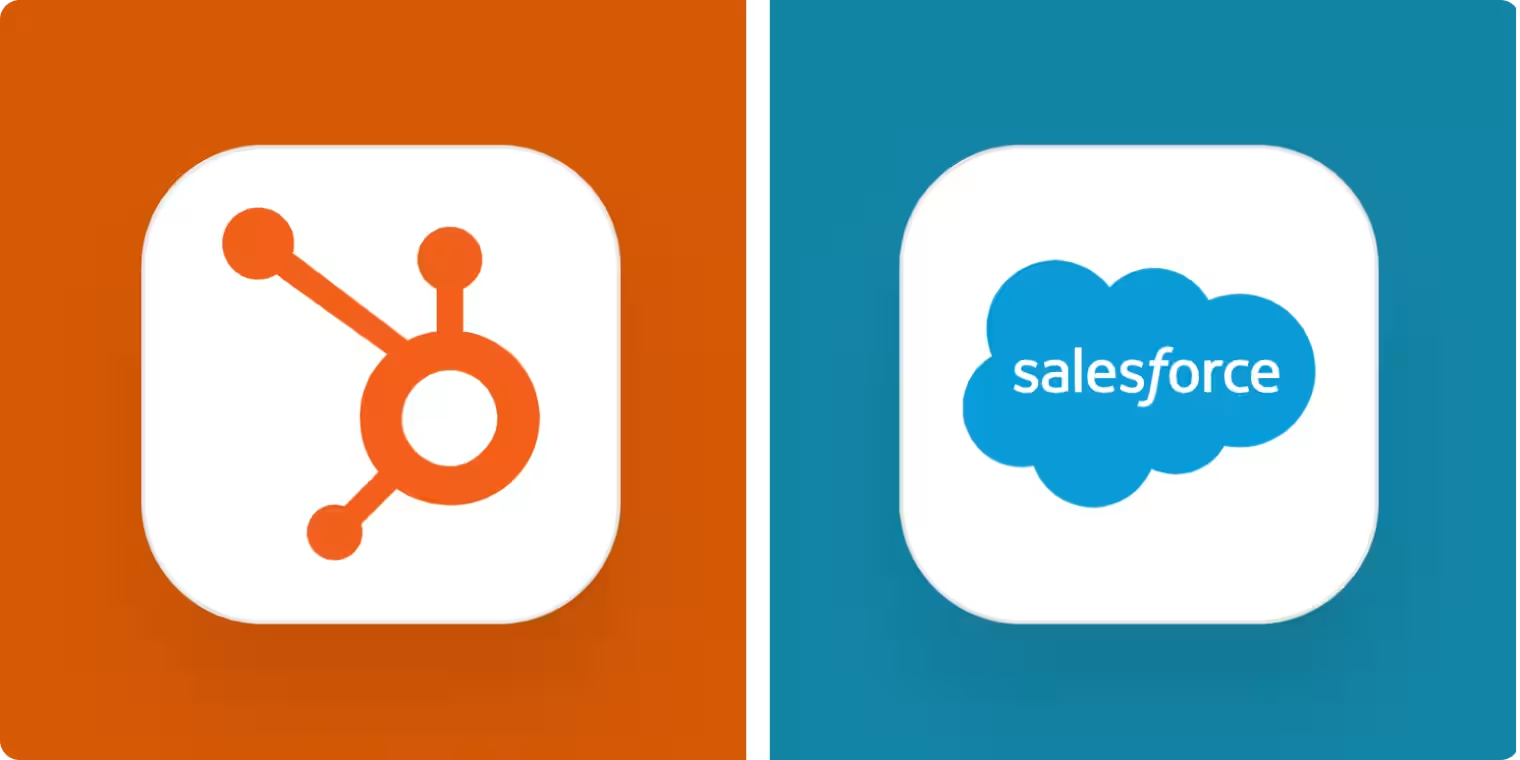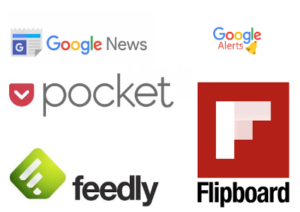Hubspot or SalesForce? SalesForce or Hubspot? Well, well, well. People are now having this discussion inDubai, London, Berlin, NY…and more. In today’s competitive market, choosing the right Customer Relationship Management (CRM) system can make or break your business. Salesforce and HubSpot are two of the most powerful and widely used CRM platforms, each with unique strengths and capabilities. Whether you’re a large enterprise or a growing small business, the decision between Salesforce and HubSpot could significantly impact your efficiency, sales, and overall growth. This comprehensive analysis dives into the core differences, similarities, strengths, and weaknesses of Salesforce and HubSpot to help you make an informed decision that aligns with your business goals.
Background of Salesforce and HubSpot
Salesforce: The Enterprise Leader
Founded in 1999 by Marc Benioff and Parker Harris, Salesforce revolutionized the CRM market with its cloud-based solution. Today, it stands as a powerhouse in the industry, offering a suite of products that cater to various business needs. Salesforce is renowned for its ability to handle complex CRM requirements for large enterprises, providing an ecosystem that includes Sales Cloud, Service Cloud, Marketing Cloud, Commerce Cloud, and more. The platform’s flexibility and extensive customization options make it a top choice for organizations that need robust, scalable solutions.
HubSpot: The Inbound Marketing Champion
HubSpot, founded in 2006 by Brian Halligan and Dharmesh Shah, started with a focus on inbound marketing before expanding into a comprehensive CRM platform. HubSpot’s philosophy centers on attracting customers through valuable content and personalized experiences. This approach has resonated well with small to medium-sized businesses (SMBs) and startups looking for an easy-to-use, integrated marketing, sales, and customer service solution. HubSpot’s CRM is known for its user-friendly interface and emphasis on inbound marketing strategies.
Core Features: A Deep Dive
Salesforce Core Features
- Sales Cloud: This flagship product offers advanced tools for sales force automation, opportunity management, contact management, and pipeline management. It leverages AI-powered insights to help sales teams close deals faster and more efficiently. With comprehensive analytics and forecasting capabilities, Sales Cloud empowers businesses to make data-driven decisions.
- Service Cloud: Service Cloud is designed to enhance customer service with features like case management, knowledge management, and omni-channel support. It enables businesses to provide personalized customer experiences and resolve issues quickly, improving overall customer satisfaction.
- Marketing Cloud: Marketing Cloud offers a robust suite of tools for email marketing, social media marketing, advertising, and marketing automation. Integrated with Sales Cloud, it ensures a seamless flow of information and a unified view of customer interactions, which is critical for executing effective marketing campaigns.
- Commerce Cloud: Salesforce’s e-commerce solution supports both B2B and B2C businesses. It offers features such as order management, product recommendations, and personalization, allowing businesses to create engaging shopping experiences for their customers.
- Einstein AI: Einstein AI brings sophisticated AI capabilities to Salesforce products. It provides predictive analytics, intelligent recommendations, and automation to help businesses uncover insights and automate routine tasks, thereby boosting productivity and efficiency.
- AppExchange: As the world’s largest business app marketplace, AppExchange offers thousands of third-party applications and integrations. This extensive ecosystem allows businesses to extend the functionality of Salesforce and tailor it to their specific needs.
HubSpot Core Features
- CRM: HubSpot’s free CRM includes essential features for contact management, deal tracking, task management, and pipeline visualization. It offers an intuitive interface that makes it easy for teams to get started without extensive training.
- Marketing Hub: This hub includes tools for email marketing, lead generation, marketing automation, and analytics. HubSpot’s marketing tools support inbound marketing strategies, helping businesses attract, engage, and delight customers through valuable content and personalized experiences.
- Sales Hub: Sales Hub offers sales automation, email tracking, meeting scheduling, pipeline management, and reporting tools. It integrates seamlessly with HubSpot’s CRM and Marketing Hub, providing a unified view of customer interactions and sales activities.
- Service Hub: Service Hub provides customer service tools such as ticketing, live chat, knowledge base, customer feedback, and reporting. These tools help businesses deliver excellent customer support and improve customer satisfaction.
- CMS Hub: HubSpot’s content management system enables users to build and manage websites, landing pages, and blogs. It includes SEO recommendations, personalization features, and integration with HubSpot’s other hubs, making it a powerful tool for managing online content and driving engagement.
- Operations Hub: This hub focuses on data synchronization, automation, and reporting. It helps businesses streamline their operations by ensuring that data is consistent and processes are automated, reducing manual effort and increasing efficiency.
Differences Between Salesforce and HubSpot
Target Market
- Salesforce: Primarily targets large enterprises and organizations with complex CRM needs. Its extensive customization options and advanced features suit businesses with sophisticated sales processes and large sales teams.
- HubSpot: Geared towards small to medium-sized businesses (SMBs) and startups. HubSpot’s ease of use and lower entry cost make it an attractive option for companies with smaller sales teams and less complex CRM requirements.
Customization and Flexibility
- Salesforce: Known for its high level of customization, Salesforce allows businesses to tailor the platform to fit specific processes. Users can create custom objects, workflows, and automation rules using Apex, Salesforce’s proprietary programming language. This flexibility is ideal for businesses with unique requirements.
- HubSpot: While HubSpot offers customization options, they are more limited than Salesforce. HubSpot focuses on providing out-of-the-box solutions that are easy to implement and use. This approach benefits smaller teams that need quick deployment without extensive customization.
Implementation and Onboarding
- Salesforce: Implementation can be complex and time-consuming, often requiring the assistance of certified Salesforce consultants or partners. Training is also more intensive due to the platform’s complexity, which can be a barrier for smaller businesses with limited resources.
- HubSpot: Generally easier and faster to implement. HubSpot provides extensive resources, including tutorials, webinars, and a robust support team, to help businesses get started. Many features are intuitive and user-friendly, reducing the need for extensive training.
Pricing
- Salesforce: Pricing is based on a per-user, per-month model and can become expensive, especially for larger teams. The costs can also increase significantly with the addition of advanced features and third-party applications. Detailed pricing information can be found on Salesforce’s official pricing page.
- HubSpot: Offers a free CRM with tiered pricing for its Marketing, Sales, Service, CMS, and Operations Hubs. HubSpot’s pricing can be more accessible for SMBs, but costs can still add up with the addition of premium features. For more details, visit HubSpot’s pricing page.
Similarities Between Salesforce and HubSpot
Cloud-Based Solutions
Both Salesforce and HubSpot are cloud-based platforms, allowing users to access their CRM data from anywhere with an internet connection. This makes them highly scalable and suitable for remote teams.
Comprehensive CRM Functionality
Both platforms offer robust CRM capabilities, including contact management, deal tracking, and reporting. They provide tools for managing the entire customer lifecycle, from lead generation to post-sale support.
Integration Capabilities
Salesforce and HubSpot both offer extensive integration options with other software tools. This ensures that businesses can connect their CRM with other essential systems, such as email marketing platforms, e-commerce solutions, and customer support tools.
Strengths of Salesforce
Advanced Customization
Salesforce’s ability to be highly customized is one of its greatest strengths. Businesses can tailor the platform to
fit their exact needs, creating custom objects, workflows, and automated processes. This level of customization is crucial for large enterprises with complex sales processes. Salesforce’s flexibility allows it to adapt to a wide range of industries, from healthcare to finance, providing specific solutions that drive efficiency and effectiveness.
Extensive Ecosystem
Salesforce’s AppExchange offers thousands of third-party applications and integrations, allowing users to extend the platform’s functionality significantly. This ecosystem provides solutions for almost any business need, from accounting to project management, and ensures that Salesforce can be integrated seamlessly with other tools and technologies. The availability of these apps enables businesses to create a highly customized CRM environment tailored to their specific needs.
AI and Analytics
Salesforce Einstein brings advanced AI and analytics capabilities to the platform. Businesses can leverage predictive analytics, intelligent recommendations, and automation to drive better decision-making and improve sales performance. Einstein’s ability to analyze data and provide actionable insights helps sales teams identify opportunities and risks, enhancing their ability to close deals and achieve targets.
Scalability
Salesforce is designed to scale with businesses as they grow. It can handle the demands of large enterprises with thousands of users, making it a future-proof solution for businesses expecting significant growth. Salesforce’s architecture ensures that it can manage increased data volumes and user activity without compromising performance, making it suitable for businesses of all sizes.
Weaknesses of Salesforce
Complexity
Salesforce’s extensive features and customization options can make it complex to use and manage. Businesses often require dedicated Salesforce administrators or consultants to manage the platform effectively. The complexity can be a barrier for smaller businesses with limited technical resources, as it requires a significant investment in time and training to fully utilize the platform’s capabilities.
Cost
Salesforce can be expensive, especially for smaller businesses. The per-user, per-month pricing model, combined with additional costs for advanced features and third-party applications, can make Salesforce a significant investment. The total cost of ownership can be high, particularly when factoring in implementation, customization, and ongoing support costs.
Strengths of HubSpot
Ease of Use
HubSpot is known for its user-friendly interface and intuitive design. Businesses can quickly get up and running with minimal training, making it an ideal choice for small teams and those new to CRM systems. HubSpot’s simplicity does not come at the expense of functionality; it offers powerful tools that are easy to navigate and use, which enhances user adoption and productivity.
Inbound Marketing Focus
HubSpot’s roots in inbound marketing give it a strong advantage for businesses focused on content marketing and lead generation. Its marketing automation tools are designed to support inbound strategies, helping businesses attract, engage, and delight customers through valuable content and personalized experiences. This approach aligns with modern marketing practices, making HubSpot a preferred choice for marketing-driven organizations.
Cost-Effective
HubSpot offers a free CRM and competitive pricing for its premium features. This makes it an accessible option for SMBs and startups looking to implement a CRM system without a large upfront investment. HubSpot’s pricing structure is transparent, with clear tiers that allow businesses to scale their usage as they grow, making it a cost-effective solution for growing companies.
Weaknesses of HubSpot
Limited Customization
While HubSpot offers customization options, they are not as extensive as Salesforce. Businesses with highly specific or complex requirements may find HubSpot’s customization capabilities limiting. The platform’s focus on simplicity and ease of use means that it may not offer the depth of customization needed for more complex business processes.
Scalability Concerns
HubSpot is best suited for SMBs and may not scale as effectively for large enterprises with complex needs. As businesses grow, they may outgrow HubSpot’s capabilities and require a more robust solution like Salesforce. While HubSpot is continually expanding its features, it may still fall short for large organizations with extensive customization and integration requirements.
Ideal Business Types for Salesforce
Large Enterprises
Salesforce’s extensive features, customization options, and scalability make it an ideal choice for large enterprises with complex CRM needs. It can support large sales teams and intricate sales processes, providing the tools and flexibility required to manage diverse and complex business operations. Large enterprises benefit from Salesforce’s ability to integrate with various systems and handle high volumes of data and user activity.
Businesses with Complex Sales Processes
Companies with complex sales processes that require advanced automation, customization, and analytics will benefit from Salesforce’s robust capabilities. Its ability to integrate with a wide range of third-party applications also adds to its appeal. Businesses in industries such as finance, healthcare, and manufacturing, where sales processes are multifaceted and heavily regulated, will find Salesforce particularly advantageous.
Ideal Business Types for HubSpot
Small to Medium-Sized Businesses (SMBs)
HubSpot’s ease of use, cost-effectiveness, and focus on inbound marketing make it an ideal choice for SMBs. It provides all the essential CRM features without the complexity and high costs associated with Salesforce. SMBs benefit from HubSpot’s user-friendly design and comprehensive support resources, which enable them to implement and leverage the platform quickly and effectively.
Startups
Startups looking for a quick and easy-to-implement CRM solution will find HubSpot appealing. Its free CRM and affordable premium features allow startups to manage their customer relationships effectively without a significant financial investment. HubSpot’s focus on inbound marketing aligns well with the growth strategies of many startups, which often rely on content and digital marketing to attract customers.
Conclusion
Both Salesforce and HubSpot offer powerful CRM solutions, but they cater to different types of businesses and use cases. Salesforce excels in customization, scalability, and advanced features, making it suitable for large enterprises and businesses with complex CRM needs. HubSpot, on the other hand, is known for its ease of use, affordability, and focus on inbound marketing, making it an excellent choice for SMBs and startups.
When choosing between Salesforce and HubSpot, businesses should consider their specific requirements, budget, and long-term growth plans. Both platforms have their strengths and weaknesses, and the right choice will depend on the unique needs of the organization. For large enterprises and businesses with complex sales processes, Salesforce provides the depth and flexibility needed to manage sophisticated operations. For SMBs and startups, HubSpot offers a user-friendly, cost-effective solution that supports growth through effective inbound marketing strategies.
By understanding the key differences and strengths of each platform, businesses can make an informed decision that will help them optimize their customer relationship management and drive sustainable growth.
Integration of Salesforce and HubSpot
Integrating Salesforce with HubSpot can offer a powerful combination of features that enhance both marketing and sales operations
. By syncing data between the two platforms, businesses can streamline processes, improve data accuracy, and provide a seamless experience for their teams. This integration is particularly valuable for companies that use Salesforce for CRM and sales management and HubSpot for marketing automation and inbound strategies. Here’s a detailed look at how the integration works, its benefits, and how to get started.
Key Benefits of Integrating Salesforce with HubSpot
- Harmonized Marketing and Sales Systems
- Integrating Salesforce with HubSpot ensures that your marketing and sales teams work in perfect harmony. Data flows seamlessly between the platforms, providing comprehensive insights and eliminating silos. This alignment allows for more coordinated efforts and better customer experiences.
- Powerful Lead Intelligence
- HubSpot’s integration with Salesforce enables the transfer of valuable lead intelligence to your sales team. Information such as email opens, form submissions and website activity is synced in real-time, allowing sales representatives to prioritize outreach and close deals more effectively.
- Enhanced Data Insights
- Gain a comprehensive view of your customers and their interactions by combining data from both platforms. This integration provides a richer dataset for analysis, helping businesses make data-driven decisions quickly and accurately. It also eliminates the need for manual data entry, reducing the risk of errors.
- Automated Workflows
- By syncing data between HubSpot and Salesforce, businesses can automate workflows involving custom objects, tickets, and more. This automation boosts productivity by reducing manual tasks and ensures that data is up-to-date across both systems.
- Personalized Customer Experiences
- Leveraging Salesforce data within HubSpot allows for more personalized marketing efforts. Use Salesforce data to segment your audience, tailor email campaigns, and track campaign performance. Personalized interactions based on comprehensive data can enhance customer engagement and loyalty.
Getting Started with the Integration
- Easy Setup with No Technical Knowledge Required
- The HubSpot Salesforce integration is designed to be user-friendly, requiring no technical setup. HubSpot’s engineers maintain and improve the integration, ensuring a reliable and fast connection. Businesses can get set up in minutes, with guided assistance available to walk through the process.
- Customizable Record Syncing
- The integration supports bi-directional sync, allowing businesses to customize how records are synced between HubSpot and Salesforce. Customize what data is shared and how it is mapped to ensure it fits your business needs. This flexibility helps maintain data consistency and relevance across both platforms.
- Comprehensive Support and Resources
- HubSpot offers extensive resources to help businesses get the most out of the integration. From detailed tutorials and articles to dedicated support staff, businesses can access the help they need to ensure a smooth and effective integration. Key resources include:
Practical Use Cases
- Sales and Marketing Alignment
- Use the integration to align marketing campaigns with sales activities. Marketing teams can create campaigns in HubSpot and track their impact on sales in Salesforce. This alignment helps in optimizing strategies based on real-time performance data.
- Lead Nurturing and Scoring
- Implement lead nurturing workflows that span both platforms. For example, a lead that shows interest via HubSpot’s marketing channels can be automatically scored and passed to Salesforce for further sales engagement. This ensures that only the most qualified leads are pursued by the sales team.
- Comprehensive Customer Profiles
- Build detailed customer profiles by combining HubSpot’s marketing data with Salesforce’s sales data. These profiles can be used to tailor marketing messages, sales pitches, and support interactions, providing a consistent and personalized customer experience.
- Reporting and Analytics
- Utilize the combined data from both platforms to generate comprehensive reports and analytics. Businesses can track the entire customer journey, from initial contact through marketing efforts to final sale and post-sale support. This holistic view helps in identifying trends, optimizing processes, and making informed business decisions.
Conclusion
The integration of Salesforce and HubSpot brings together the best of both worlds, offering a powerful solution for businesses looking to streamline their marketing and sales operations. By synchronizing data between the platforms, companies can enhance efficiency, improve data accuracy, and deliver personalized experiences to their customers. Whether you are a small business looking to grow or a large enterprise aiming to optimize operations, this integration provides the tools needed to achieve your goals.
For more information or to get started with the HubSpot Salesforce integration, visit HubSpot’s Integration Page or contact their support team for assistance. Embrace the power of integrated systems and take your business to new heights.
__
more relevant links:




